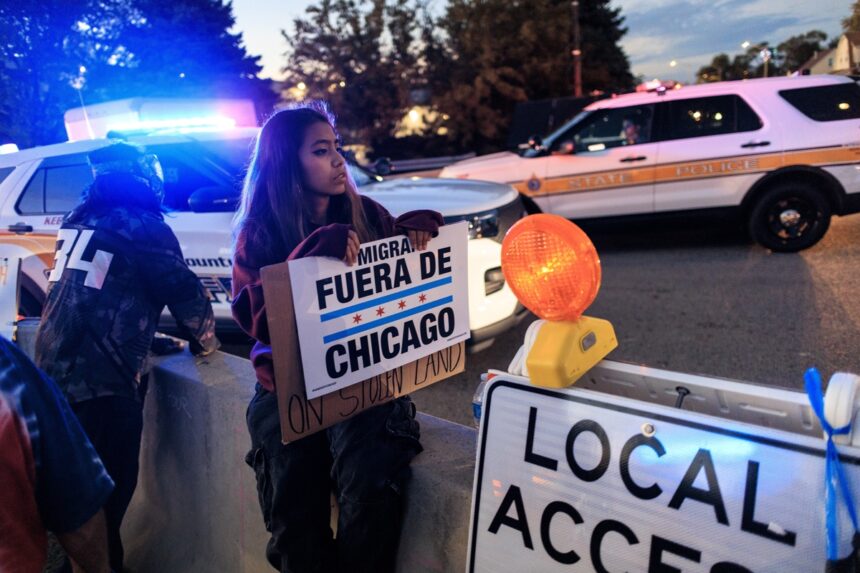From Washington, Donald Trump’s administration filed an emergency petition with the U.S. Supreme Court to allow the deployment of the National Guard to the Chicago area.
This is in order to protect federal agents and “federal property” from what they argue are increased risks during immigration operations in that city.
Trump wants to deploy National Guard to Chicago
BREAKING: Trump asks the Supreme Court to allow him to use National Guard troops to support immigration enforcement and mass deportation drive.https://t.co/Tkae3JH0vj
– POLITICO (@politico) October 17, 2025
The Executive’s request seeks to have the Supreme Court overturn previous lower court decisions that had limited or blocked military deployment in Illinois.
An appeals court has already upheld one such blockade, noting that the arguments presented by the federal government to justify the mobilization did not meet the threshold necessary to invoke a situation of “rebellion” or constitutional threat.
The case reflects a legal struggle between the federal power and the states led by Democratic governors who consider these moves a usurpation of the principle of state autonomy.
In addition, the Seventh Circuit Court of Appeals ordered that National Guard troops already in Illinois may remain, but may not deploy for patrols or protect federal property until there is a final court decision.
Operation Midway Blitz and the role of the National Guard
As of September 9, 2025, ICE, under the ownership of the Department of Homeland Security (DHS), launched Operation Midway Blitz in Chicago.
This with the mission of arresting undocumented immigrants with criminal records.
To date, some 1,500 arrests have been reported in this city.
Trump is seeking up to 200 Texas National Guard members could be deployed to Illinois, specifically in the area of an ICE processing center that has been a focal point of ongoing protests.
The federal government argues that federal forces face violent opposition while carrying out these operations, which would justify military support.
What’s at stake for the Hispanic community
Security and civil rights in tension: The use of military forces inside civilian urban areas raises questions about protection of individual rights, management of the use of force and how it is coordinated with local and state authorities.
Legal significance of the Supreme Court decision: This decision may set precedents on when and how the federal government can deploy troops in cities without state consent.
Direct impact on Latino communities: Many immigrants already live in fear during ICE raids. A military deployment could increase tensions, the risk of mistaken arrests or more contact with federal forces.
What a person in the U.S. can do.
Stay informed with reliable media (AP, Reuters, EFE, etc.).
If you live in areas with a strong presence of operatives, avoid conflict zones on the day of demonstrations or arrests.
Understand your rights if you are detained (silence, ask for a lawyer).
Cooperates with authorities, but demands legal and respectful treatment.
This episode marks a turning point in the relationship between federal powers and state authorities: the trial on whether the government can militarize cities during immigration operations.
It will be key to see how the Supreme Court acts and what role local forces play in responding to or resisting such intervention.
Filed under: Trump National Guard Chicago














